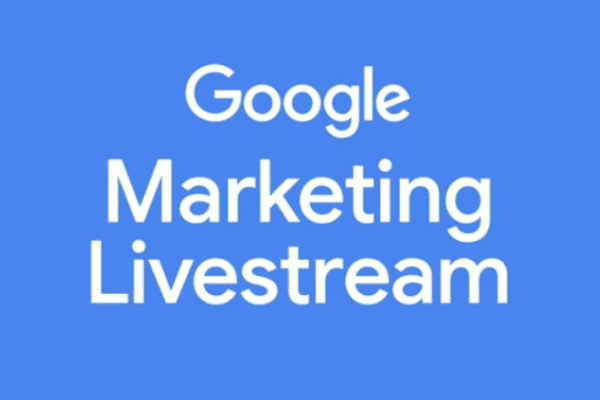In the early days of search engine marketing software, simply managing your Paid Search programs carefully was likely enough to give a business the edge over your competitors. SEM opened up a whole new world in which it was possible to quickly, cost-effectively reach audiences at a breadth most brands had only dreamed of but with a precision that was virtually impossible just a few years before.
Targeting consumers by their keywords has proven over the last two decades to be an extremely profitable strategy.
However, in the new era of search—native search engine-provided tools have advanced considerably, making automated publisher bidding accessible at low or no cost to all search marketers, effectively leveling the playing field. Now, those who want to make the most of their SEM ad spend don’t necessarily need to have a decade of experience under their belts.
This means every search marketer has to up their game to find a competitive edge.
The new standard for search engine marketing software isn’t just about managing campaigns well. Total search intelligence goes beyond standard search metrics and best-in-class bid strategies. And the companies that will win the SERP will be those that can best leverage internal and external data to fuel exceptional insight-driven marketing through data, performance, and measurement intelligence.
Here are a few ways the latest advancements in search engine marketing software can ensure your business is not just in the game but is winning it.
Data intelligence
With so much emphasis on data-driven decisions, it’s pretty easy to see how today’s marketers could be overwhelmed by the paradox of choice—that is to say, too much insight coming from both external and internal sources. But one of the best ways that search engine marketing software can help, not just gather information, but gather that information for the larger purpose of making actionable decisions, is the heart of data intelligence.
True data intelligence comes from marrying internal and external search data in order to create actionable insights. Internal data from insights gleaned using SEM campaign performance data such as marketing analytics, sales, CRM, and business operations data should be used in conjunction with external data including voice-of-the-customer, competitive intel, and market insights to create a holistic approach to data-driven marketing.
And data can also be used to audit search campaigns and make sure everything is running smoothly. By implementing AI-powered search engine marketing software to monitor campaigns, anomalies—both internal and external—can be spotted quickly and insights can be delivered in real-time. This means that errors can be fixed instantly, rather than in a tense boardroom three months later during a campaign post-mortem.
In today’s highly competitive search landscape, total data intelligence is a need for all search marketing teams looking to stay one step ahead of their rivals and keep campaigns in compliance.
Performance intelligence
Even though publisher bidding is automated, it’s absolutely not “set it and forget it.”
Search marketers absolutely should get involved on their side and send brand-side data to the publisher in order to give better insights into what specifically matters to the brand in order to optimize bids accordingly.
Search engine marketing software features such as Skai Search’s Signal Enhancement can help a company make informed decisions, even when it comes to bidding automation. For example, a publisher’s conversion pixels might be able to track which keywords and ads drove leads for a brand, but only the brand’s back-end systems know which of those leads actually ended up as sales—and at what value.
Without a full view that includes all these insights, the publisher’s automated bidding can only optimize toward leads. But with the help of performance intelligence data, the publisher can help a university automatically optimize its bids for funded enrollments or better understand which of its products drive the most profit so that bids are set accordingly.
As more AI enters the channel—like automated bidding—the role of search marketers will be to set it up so that it can reach its maximum potential. If you’re not already teaching Google’s Smart Bidding algorithms the right way to optimize your accounts by sharing your brand’s back-end revenue/profit data, you’re not going to get the best results.
Measurement intelligence
Every experienced digital marketer knows that the real path to great ROI is through optimization. The performance from Week 1 of any Paid Search campaign is just a starting point as practitioners optimize throughout the flight, pruning away the things that are wasting budget and promoting things that drive conversions.
And what drives optimization? Measurement. Your measurement practice is your compass which helps your optimization team navigate.
And while digital marketing is generally much more measurable than offline advertising, there are still blind spots due to tracking limitations. For example, upper-funnel influence on future sales can often be hard to address. Similarly, online/offline impact is also hard for practitioners to connect the dots. Marketers have somewhat learned to live with these gaps in their measurement practices—but more intelligent testing and measurement technology could mean the end of those knowledge gaps, offering an opportunity for savvy marketers to gain a competitive edge.
For instance, Skai’s Impact Navigator offers an opportunity for greater understanding of the incremental impact—if any—for any element or combination of elements for their programs, including quantifying the online/offline impact of a campaign across channels and devices, essentially filling in those gaps between the on and offline worlds. Virtually anything that a marketer wants to measure can be measured with incrementality testing…the value of a dayparting strategy, the right budget by geolocation, the best ad copy, etc. More intelligent testing through AI-powered search engine marketing software means more than collecting data and running tests, it means seeing the ways those insights can shape the success of a campaign in real-time.
Recent industry changes and limitations to ad tracking means that search engine marketing software has to evolve to fill in the gaps. Measurement intelligence is just too important of an area for search marketers. They must have the right solutions in place to ensure that their optimization doesn’t suffer.
How intelligent is your search engine marketing software?
To see Skai Search’s data, performance, and measurement intelligence features, reach out today to schedule a quick demo.






